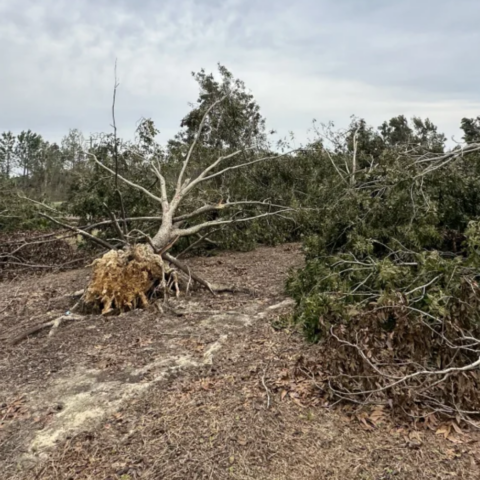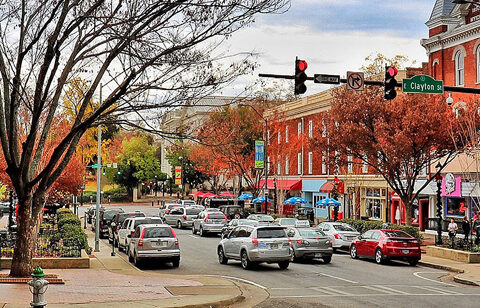
By: Greyson Clark
In the last two months, Georgia Political Review has published keen analysis of the 2014 senate and gubernatorial elections. One focused on Michelle Nunn’s announcement of her candidacy. Another analyzed the underwhelming showing of Democratic candidates for governor. While both are thoughtful and provide useful analysis, neither identifies a deeper trend running through both arguments. The Democratic Party of Georgia (DPG) needs serious attention and help. This fact underpins the other two articles and makes explicit a component that is only implicitly woven into their arguments. Understanding the DPG’s dire situation is a precondition for a complete understanding of Georgia’s political outcomes, especially next year’s statewide elections.
Republicans in Georgia have cause to worry, or, at least, to begin thinking about worrying. Many Democrats point to Obama’s 2012 close(ish) performance despite the absence of the presidential campaign from the state. More Democrats tout the state’s changing demographics, arguing that a tipping point and a day of reckoning are swiftly approaching. But Republicans are not worried. The DPG has failed to score political points in any recent sparring match.
Take for example the seemingly constant controversy surrounding Governor Deal. Aside from allegations of corruption stemming from his time in the Georgia General Assembly, some shady connections with businesses, and giving a disgraced former senator a high-paying government job, the most recent storm comes from within the state apparatus itself. Essentially, there is reasonable suspicion that Deal exercised influence over the ethics commission’s investigation into his practices. Deal lamented the decline in reporting and called the Atlanta Journal Constitution (AJC), which wrote the report, a “fish wrapper.” As the story developed, the ethics commission called for a special investigator, and last week, three more allegations against the governor were submitted. The DPG is being provided with an arsenal, but it is not leading the charge. On the other hand, Better Georgia, an independent progressive organization, is strongly pushing the issue.
Instead of strongly articulating and advancing its agenda, the DGP is divided, ineffective, and, dare one say, broken. A concise history demonstrates the extent of the disarray. In February 2012, news broke that revealed a dreadful situation, reminiscent of high school clubs with their bickering, quitting, and no-shows. Highlights include the resignation of the party’s chief of staff, news of a budgetary shortfall ($3,000 dollars beyond the $37,000 in the DPG’s coffers), the chairman saying he had not spoken with the treasurer in 14 months, and the treasurer’s response that this was not true. In May 2012, the DPG’s treasurer resigned. In June 2013, the chairman resigned. The election of a new chairman revealed more divisions; Atlanta Mayor Kasim Reed, for reasons unclear, requested to review the ballots cast in the election. He did not back the chairman-elect in his campaign for the position. An AJC political commentator assessed the DPG as optimistic and divided, noting that optimism is only natural when all of the pessimist’s expectations have been exceeded.
Aside from failures to capitalize on opponent’s mistakes, another telling indicator of the DPG’s disarray is in the party’s champions for the 2014 campaigns. For Senator Chambliss’ seat, Michelle Nunn, daughter of longtime Senator Sam Nunn, is the clear Democratic frontrunner. State Senator Jason Carter, grandson of the most famous Georgia politician, just commissioned a reconnaissance exercise into a potential campaign against Governor Deal. Not to say that these candidates are not well qualified and would not reflect well on the party, but they represent a reliance on an older generation of Democrats, one that is history. New champions are slow to emerge and take center stage. Neither Atlanta Mayor Kasim Reed nor House Minority Leader Stacey Abrams are prepared to risk a statewide campaign. Despite Senator Carter’s preliminary interest, the DPG has still not cultivated a strong contender for an election that is only a year away. This is not a strategic way to start and has certainly hindered fundraising efforts.
This does not mean that Democrats stand no chance in Georgia’s 2014 elections. But their chances cannot be credited to the DPG. Rather, and in another telling reflection of the DPG’s impotence, the national party intervened, assuming costs and responsibilities and entrusting power with federal lieutenants. Democratic operatives working on Nunn’s campaign are closely linked with Harry Reid, President Obama, and the Democratic Senatorial Campaign Committee. While D.C. politicians want to see a blue victory in Georgia, they are not willing to trust money or personnel to state leadership. By circumventing the DPG, however, the national politicians are removing another big chance for the DPG to get some real experience and turn itself around, especially before 2016 and 2018, which many see as the first big chance for Georgia Democrats.
Coverage of the 2014 campaigns must consider the underlying current of the DPG’s weakness. Its pool for champions is shallow, and its roots for flipping the state are weak. The DPG must rally, find effective leadership, and cultivate more champions. If it continues to rely on old name recognition and remains divided, it will be overlooked and circumvented by outside groups, remaining irrelevant. For any Democrat looking for Georgia to go blue in 2016 or 2018, the outcome (and everything that comes in between now and then) is being written in the present.

